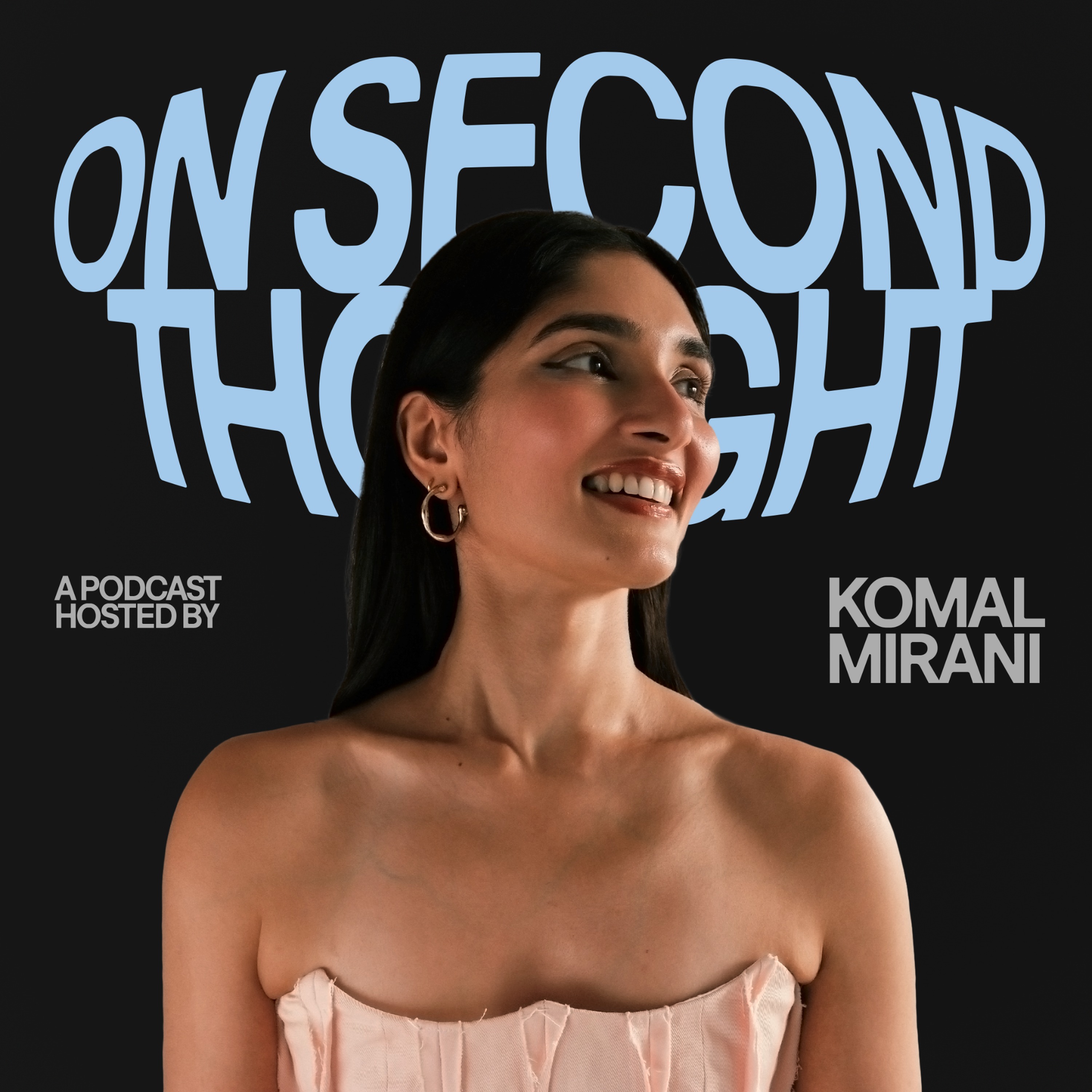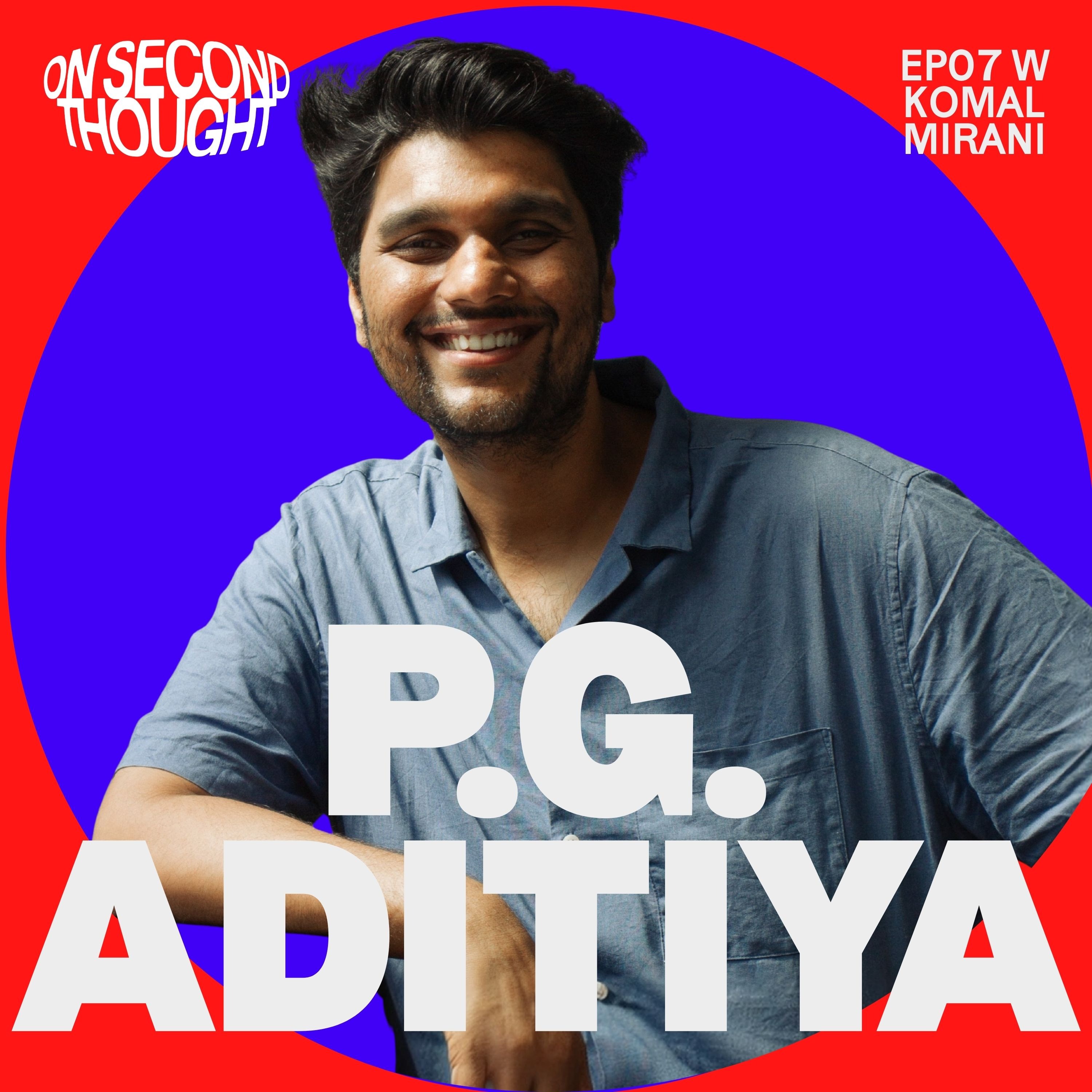On Second Thought with Komal Mirani
Podcast Description
“The future is already here—it’s just not evenly distributed.”Everywhere you look, fragments of the future are already visible—not just in AI that generates and robots that operate, but in the ways we learn, build, express, and connect.In classrooms reshaped by screens. In architecture that adapts to climate. In culture that’s remixed in real time. In tools designed to make the world more accessible, more human.These shifts aren’t universal yet, but they’re out there. And if we pay attention to the edges, we can start to understand what’s coming next.I’m Komal Mirani, and that’s what On Second Thought is about—your window into the ideas and innovations reshaping our world.Through conversations with the people imagining, building, and questioning what’s next, this podcast makes the future feel a little more tangible—something you can understand, participate in, and help shape.
Podcast Insights
Content Themes
The podcast delves into themes surrounding technology, culture, education, and media, with episodes such as exploring the evolution of the Indian internet and discussing the impact of infinite content on attention spans. It emphasizes understanding cultural shifts, future innovations, and the intersection of creativity and technology.

“The future is already here, it’s just not evenly distributed.”
Everywhere you look, fragments of the future are already visible—not just in AI that generates and robots that operate, but in the ways we learn, build, express, and connect.
In classrooms reshaped by screens. In architecture that adapts to climate. In culture that’s remixed in real time. In tools designed to make the world more accessible, more human.
These shifts aren’t universal yet, but they’re out there. And if we pay attention to the edges, we can start to understand what’s coming next.
I’m Komal Mirani, and that’s what On Second Thought is about—your window into the ideas and innovations reshaping our world.
Through conversations with the people imagining, building, and questioning what’s next, this podcast makes the future feel a little more tangible; something you can understand, participate in, and help shape.
PG Aditiya is the Co-Founder and CCO of Talented, one of India’s sharpest and most awarded creative agencies, built on the belief that great work begins with great people.
Titles, however, only partly describe his role. His thinking extends well beyond the mechanics of advertising, shaped by a deep reverence for craft, an archival curiosity for its history, and a visible pride in the people behind the work.
In this episode of On Second Thought, he reflects on the changing agency model, the thinking behind Talented’s internal handbook, and why talent density – rather than scale has become the organising principle of the company.
Drawing on family lore, objects of close affection, and years spent in the business of advertising, he speaks candidly about creative ambition, and how Talented responded to a long-standing need in the market.
He also considers the history of advertising and its influence on modern culture, alongside his own journey as a founder.
The conversation also covers culture and attention, touching on matcha raves, soft clubbing, and the fragmentation of media and meaning online. Taken together, it is a portrait of a creative leader thinking carefully about what endures and where advertising still feels alive.
About Talented:
Talented is on a mission to be the greatest creative company in the world. It is an independent creative agency founded in 2022 in Bangalore by Gautam Reghunath and PG Aditiya. The firm has quickly built a reputation for thoughtful, nuanced work for both legacy and modern brands, and has been recognised on the global stage: Talented has won multiple Cannes Lions, including a Silver Lion for its Avani’s Gold campaign for Britannia Marie Gold at the 2025 Cannes Lions International Festival of Creativity, among other metals for work across media and storytelling.

Disclaimer
This podcast’s information is provided for general reference and was obtained from publicly accessible sources. The Podcast Collaborative neither produces nor verifies the content, accuracy, or suitability of this podcast. Views and opinions belong solely to the podcast creators and guests.
For a complete disclaimer, please see our Full Disclaimer on the archive page. The Podcast Collaborative bears no responsibility for the podcast’s themes, language, or overall content. Listener discretion is advised. Read our Terms of Use and Privacy Policy for more details.